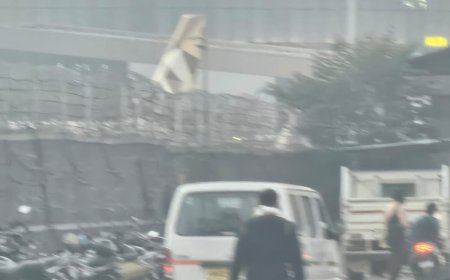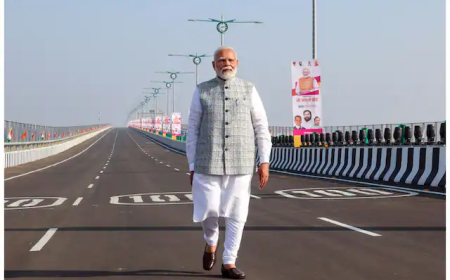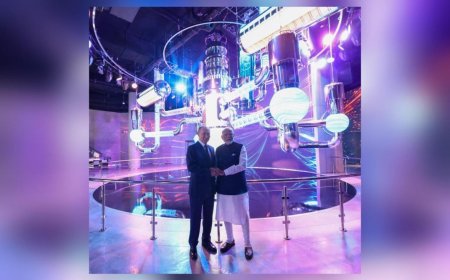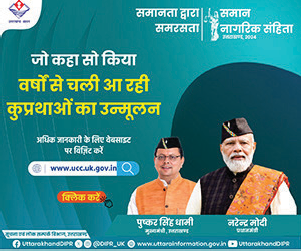New Delhi : The counting of votes for the Haryana and Union Territory of Jammu-Kashmir assembly elections began today at 8 AM. The ruling Bharatiya Janata Party (BJP) in Haryana is confident that it will receive a mandate for the third consecutive time. However, it is noteworthy that the exit polls have generated enthusiasm within Congress, which is hoping for a return to power after 10 years. In Jammu-Kashmir, this mandate will establish the first elected government since the abrogation of Article 370 in 2019. Elections are also set to take place in Maharashtra, Jharkhand, and Delhi in the coming months.
According to Haryana's Chief Electoral Officer Pankaj Agarwal, a three-tier security system has been implemented at the counting sites. A total of 93 counting centers have been established across 90 assembly constituencies in the state's 22 districts. Two counting centers have been set up for the Badshahpur, Gurugram, and Pataudi constituencies, while one center has been established for each of the remaining 87 constituencies. Ninety counting supervisors have also been appointed. The counting of postal ballots will commence first, followed by the counting of electronic voting machine (EVM) votes half an hour later. Accurate information about each stage of the counting process will be uploaded in a timely manner.
The main parties contesting in this election include the BJP, Congress, Aam Aadmi Party (AAP), Indian National Lok Dal (INLD)-Bahujan Samaj Party (BSP), and Jananayak Janata Party (JJP)-Azad Samaj Party (ASP). Most assembly constituencies are expected to witness a direct contest between the BJP and Congress. In Haryana's 90 seats, 1,031 candidates are contesting, including 464 independents and 101 women. Voting took place on October 5 in a single phase, with a turnout of 67.90%.
In the Union Territory of Jammu-Kashmir, voting occurred simultaneously with Haryana; however, there are likely to be multi-cornered contests instead of direct battles between Congress and BJP in most seats. Haryana's Chief Minister Nayab Singh Saini has dismissed the exit poll results, claiming that the BJP will secure a full majority for the third time. Congress leader and former Chief Minister Bhupinder Singh Hooda has also expressed confidence in obtaining a full majority, with Hooda being seen as the front-runner for the Chief Minister position. Meanwhile, AAP leader Arvind Kejriwal has claimed that no government can be formed in Haryana without his party's support.
Key candidates in Haryana include Chief Minister Saini (Ladwa), Opposition Leader Hooda (Gadhi Sempala-Kiloi), INLD's Abhay Chautala (Ellenabad), JJP's Dushyant Chautala (Uchana Klana), BJP's Anil Vij (Ambala Cantt), Captain Abhimanyu (Naranoud), OP Dhankhar (Badli), AAP's Anurag Dhanda (Kalayat), and Congress's Vinesh Phogat (Julana). There are also several rebels from Congress and BJP in the fray. In the previous elections in 2019, the BJP formed the government with the support of JJP. Following Saini's appointment as Chief Minister in March, the alliance with JJP was dissolved.
In Jammu-Kashmir, voting also took place alongside Haryana, but most seats are likely to see multi-cornered contests instead of direct fights between Congress and BJP. The main contenders in Jammu-Kashmir include the Congress-National Conference (NC) alliance, People’s Democratic Party (PDP), and the BJP. This election comes five years after the former state was divided into the Union Territories of Jammu-Kashmir and Ladakh. According to officials, a three-tier security system has been established at all counting centers for the 90 seats. Security personnel have been deployed at all counting centers in the Kashmir Valley and Jammu region. This time, voter turnout was recorded at 63.45%, lower than the 65.52% in the 2014 assembly elections.
Key candidates include NC leader Omar Abdullah (Budgam and Ganderbal), People’s Conference’s Sajjad Gani Lone (Handwara and Kupwara), Pradesh Congress Committee president Tariq Hameed Karra (Batmalu), and BJP’s state president Ravinder Raina (Naushera). Other candidates include Congress general secretary Ghulam Ahmed Mir (Duru), PDP leader Waheed Para (Pulwama), Iltija Mufti (Bijbehara), Jammu and Kashmir-APNI Party president Altaf Bukhari (Chanapura), Marxist Communist Party (MCP) leader Mohammad Yusuf Tarigami (Kulgam), former Deputy Chief Minister Muzaffar Hussain Baig, and Tara Chand. Exit polls indicate a lead for the NC-Congress alliance, with regional parties also expected to win some seats. BJP leader Ravinder Raina claimed that their party would emerge as the largest party, winning 35 seats, and would form a government with the help of like-minded and independent candidates.




 Previous
Article
Previous
Article











